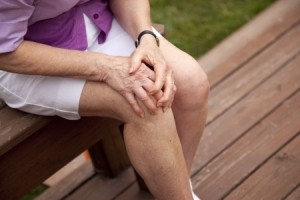In some cases, the knee’s anterior cruciate ligament (ACL) is only slightly torn, so that it stretches but is still able to provide support to the knee. A slight ACL tear still requires treatment, although treatment may be less intensive than for a severe ACL tear. Below, we will take a look at the most common slight ACL tear symptoms, as well as how this type of knee injury is usually treated.
ACL tears are classified as Grade I, Grade II, or Grade III. Grade I tears are slight, and constitute a stretching of the ligament, which is still able to provide support and structure to the knee. In Grade II tears, the ligament is actually torn, but is not completely severed. In a Grade III tear, the ligament is torn all the way through, so that it is in two pieces. The symptoms of a severe ACL tear can be dramatic, and the patient may be completely unable to use the knee.
Slight ACL Tear Symptoms
In contrast, slight ACL tear symptoms tend to be much less severe. Patients tend to experience symptoms like:
- Swelling in the knee
- Discomfort while walking
- Tenderness on the knee
Treatment for Slight ACL Tears
It is often effective to treat the symptoms of slight ACL tears in a non-invasive manner, especially if the patient is older or more sedentary. In contrast, more severe ACL tears almost always require surgical intervention. The following treatments can help reduce inflammation and restore functionality to the knee:
- Rest – Resting the knee for a few days can give an opportunity for inflammation to go down, easing the symptoms associated with the tear.
- Ice – Applying ice for 20-30 minutes at a time several times a day can reduce swelling and inflammation.
- Compression – Wearing a compression bandage can help support the knee, allowing it to heal.
- Elevation – If you have a lot of swelling, elevating the knee above the level of the heart, while ensuring that the knee and leg are fully supported, can help swelling go down.
- Physical therapy – Your doctor may recommend certain exercises, or refer you to a physical therapist. The exercises you learn will strengthen the muscles that support the knee, relieving symptoms. You should continue to practice these exercises even after formal physical therapy ends.
- Medication – Nonsteroidal anti-inflammatory drugs (NSAIDs) like Aleve and Motrin can help bring down inflammation. Always follow the instructions on the label, and avoid taking any over-the-counter medication on a long-term basis unless your doctor specifically instructs you to do so.
Dr. Howard Marans would be happy to meet with you about your ACL tear. To schedule a consultation today, please click below and enter your information or call OC Orthopedic at (714) 979-8981.



